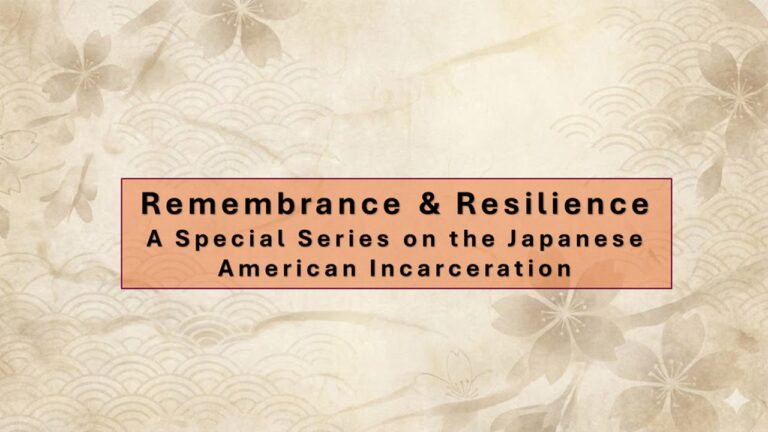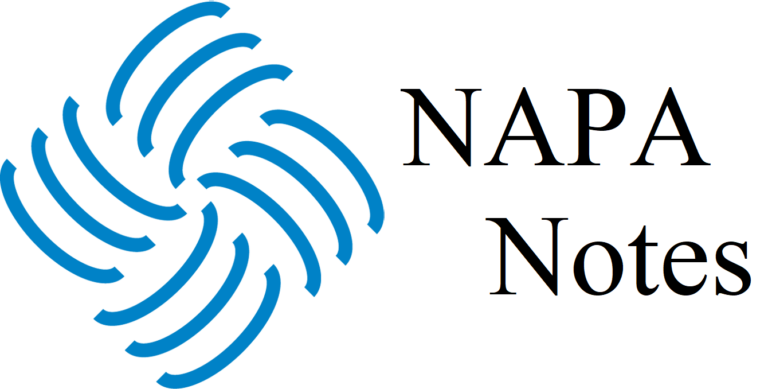National Association for the Practice of Anthropology
sNAPAshots: Tanya Rodriguez
Brand new sNAPAshots for June! Visit the NAPA website to learn more about Tanya Rodriguez's experiences growing up and studying enthnomedicine and cultural competence in healthcare prepared her for a career applying anthropology in the study of food for a major corporation and how she centers consumers and communities in her work!

This work is licensed under a Creative Commons Attribution-NonCommercial-ShareAlike 4.0 International License.
Transcript
Interviewer 0:06
Welcome to aNAPAshots: Conversations with Professional, Practicing, and Applied Anthropologists.
0:19
[On Screen Text] Tanya Rodriguez, Cultural Anthropologist, Hormel Foods Corp.
Tanya Rodriguez 0:23
I started off studying ethnomedicine, and I was looking at kind of the intersections between biological medicine, so people who were going to, you know, doctors and so forth, mental health specialists and so forth, but also looking at some of their cultural forms of healing like curanderismo and Santeria and so forth. And so I was pursuing a PhD in basically ethnomedicine, cultural competence in medicine. And that was very interesting to me, especially because of my family background. I had a mother who grew up with polio and was being treated for both, you know, her biological doctors, but also cultural healers and so forth. So that that’s kind of where I started. I ended up, however, by accident, in food. And food is also a form of nourishment. You know it food is medicine, it’s healing. And so now I’m actually practicing through a corporation, with a corporation, and doing basically consumer research and food. Growing up economically disadvantaged really teaches you about how people are very savvy and very innovative in how they approach situations. In this case, food really helps you understand that really great food is coming from the people themselves. It’s not about chefs, it’s not about industry, it’s from the people themselves. And a lot a lot of times that’s women as well. So I think that’s very powerful thing that I learned as a young person. And then to take that even further, I would say like my grandmas were my cultural kindergarten. And so that’s definitely where I would say that I learned so much about food, my own culture and other cultures, and how you are able to make magic in the kitchen that has very much influenced how I study food today.
Interviewer 2:26
Do you recal a moment that changed the way you practice anthropology?
Tanya Rodriguez 2:25
Oh, there are so many moments that really changed the way that I value anthropology and the way I practice anthropology. I think one of my most powerful projects has been working with the local youth in the small town that the company I work for is located. And the youth are immigrants. They are first generation to the country, and they are trying to learn to navigate, right, American culture. But of course, they’re wanting to preserve their culture and to share their culture. And so I was able to work with them in terms of doing a small ethnographic field school regarding food and regarding their food, and how do they see food, and what is the role of food in their culture, not just functionally, but culturally, emotionally. And so being able to help guide those students in the practice really taught me everything that anthropology can bring to bear, to having people represented, representing themselves in different scenarios, in this case, food culture. So that was really powerful. And I think my other example is was doing research with cancer patients and being able to see people who are literally, physically struggling with food and so speaking with them about their food challenges, and having people tell stories where they’re like, I used to love this. Now I can’t eat it anymore, you know, because I’m having this treatment and it tastes metallic and so forth. It showed me how valuable it is to be empathetic regarding things like food, regarding a bunch of sensitive issues. So those two things, I would say, is just being able to put yourself in someone else’s shoes really shakes your foundation. You think, Okay, I’m empathetic. I’m doing my job. I’m interested, I’m curious. But when you really see some of these issues that people are up against and in terms of trying to navigate culture, it’s very powerful, and that has changed me fundamentally as anthropologist, to make sure that I’m always an advocate for the people that I study.
Interviewer 2:38
What industry challenges do you get to solve with an anthropological perspective?
Tanya Rodriguez 4:36
Working in business, in a business setting is very, very different from working in an academic setting or other types of setting, they have their own language, their own way of doing things, their own idea of what results matter. So I think it’s been an interesting and fun challenge to be able to learn to speak the language of business, but also to help my business learn aboutAnthropological frameworks, and how we can see things differently, how we can take a more empathetic view, and how that empathetic view can be used to fuel innovation, fuel insights, and really drive results. And so it’s really not about me learning what they do or them learning what I do, but it’s about being able to synchronize and hybridize and really be able to get the best of both worlds, so that we’re bringing better food to people. And ultimately that’s that’s really what I want to do. So there’s that professional challenge in the the environment, but the bigger thing, and the most important thing, is I want to make sure that people have nutritionally dense, meaningful, culturally meaningful and high quality food that all people have access to that so that’s my really big challenge in the work that I do, is making sure that my employer understands that we need a variety of products that meet different price points for different types of people. We also need variety in terms of products that are culturally resonant, and that’s the biggest thing that I do, is really making sure that those products get to people. And in addition to that, the big thing is putting that consumer voice at the forefront of everything that we do, and making sure that the consumer is able to be present in all our meetings and all our types of innovation and any type of insight meeting where their stories, their desires, their pain points are at the forefront of everything that we do. So I’m going to go out there. I’m going to actually go and do classic ethnographic work. I’m going to be in a community sometimes. I’ve lived on college campus, you know, for several weeks with students and hanging out and snacking and learning how they eat and so forth. So I’m using a lot of those traditional tools, like actual observation techniques, participant, you know, observation and actually hanging out with students, or hanging out with consumers, shopping with them and so forth. So there’s just a host of things that I’m I’m bringing to bear in the actually doing research, but then you’re doing the assessment, and it’s helping really get an idea of all of the types of issues that the consumers are facing, what they want to bring to bear. So that assessment of what’s important, why it’s important. One of the most powerful tools is the storytelling. How do you translate all these stories? How do you translate all of the consumer, the consumer’s desires again and those pain points? How do you transfer translate that to a team who has to solve these issues, and has to really understand the consumer on a deep level. So you have to be a good storyteller, you have to be succinct, and you have to be dynamic to inspire your teams to even greater products for your consumer.
Interviewer 7:56
What is the one thing about the practice of anthropology that nobody told you as a student?
Tanya Rodriguez 7:55
The thing that I did not know about anthropology as a student was its ability to be applied. Now I did understand that, don’t get me wrong. I understand that in terms of cultural competence in medicine, that had been something that I heard a lot about, but I did understand that there was so many different things that you could do with anthropology. I didn’t realize that I could get into a business environment and do anthropology. I didn’t realize people were in tech doing anthropology, or people were doing international development and using their anthropology degree in this way. I was in this mindset that an anthropologist became an academic and was a professor, but I didn’t realize there were boots on the ground anthropologists who were doing things that you wouldn’t I, at least I didn’t conceive of at that time. Now I’m like, wow, anthropologists are helping build autonomous vehicles. Anthropologists are helping study science in space. Anthropologists are helping produce food. Who knew? And so that was really a revelation to me, even after getting my PhD. So I just am very happy to have found NAPA and finding a place of practicing anthropologists and expanding the aperture for what anthropologists can and do already.
Interviewer 8:03
What advice would you give to future anthropologists seeking roles in professional, practicing, and applied fields?
Tanya Rodriguez 9:12
There’s so many things that I’d like to pass on, but first of all is stay curious, even when it’s hard to stay curious, right? You might be in an environment that doesn’t necessarily nurture curiosity sometimes, but I’d like like to have people maintain their curiosity, maintain their creativity with technology and so many other things. In politics, it’s kind of hard to do that sometimes, but I think that’s kind of the bread and butter of anthropologists, is that they’re curious, also that there’s a lot of diversity representation amongst anthropologists, and we need to keep taking those seats. We need to make sure that different types of people, whether it be gender or ethnicity and otherwise, are represented in the field, so making sure that we’re advocates in that respect. So I think that’s a very important thing. But. I think, most and foremost is that you’re always empathetic and a storyteller of the people or issues that you study, whether it’s in an academic role or whether it’s in a practice role that that is first and foremost is making sure that you’re protecting, upholding and being as accurate as possible and as safe as possible with the people that you are doing research with.
Credits 10:30
PRODUCED BY Niel Tashima Cathleen Crain Joshua Liggett DIRECTED BY Reshama Damle EDITED BY Whitney Margaritis MUSIC VIA PIXABAY: “Fat Chillin” by Lazy Chill Zone, “Cocktail” by Alex Productions ADDITIONAL FOOTAGE VIA PEXELS BY: Alena Darmel, Cityxcape, Fauxels, Ono Kosuki, RDNE Stock Project, Tima Miroshnichenko
Interviewer 10:30
Like, what you see, let us know! Find us at PracticingAnthropology.org. LinkedIn, Meta X, Bluesky, and YouTube. Many Thanks to NAPA’s Governing Council for supporting sNAPAshots Conversations with Practicing, Professional, and Applied Anthropologists. NAPA is a section of the American Anthropological Association.
Volunteer Plug 10:30
[On screen text] Want to volunteer with NAPA? We’d love to hear from YOU! Contact: ntashima@ ltgassociates.com [In starbursts: Social Media, Organization, Promotions, Events]
AAP Plug 10:30
[On screen image, Front cover of the AAP journal for NAPA, and text] Stay connected with 40 years of the Annals of Anthropological Practice https://practicinganthropology.org/communicate/submit-to-the-annals/
Interviewer 10:30
[On screen image: NAPA Logo] sNAPAshots
Transcribed by https://otter.ai



![[NAPA Logo] sNAPAshots: Conversations with Professional, Practicing, and Applied Anthropologists. Rosalie Post, Design Anthropologist, Co-founder of NAMLA. PracticingAnthropology.org Bluesky, X, Meta, LinkedIn, and Youtube Logos](https://practicinganthropology.org/wp-content/uploads/Rosalie-Post-LinkedIn-Flyer-768x768.jpg)